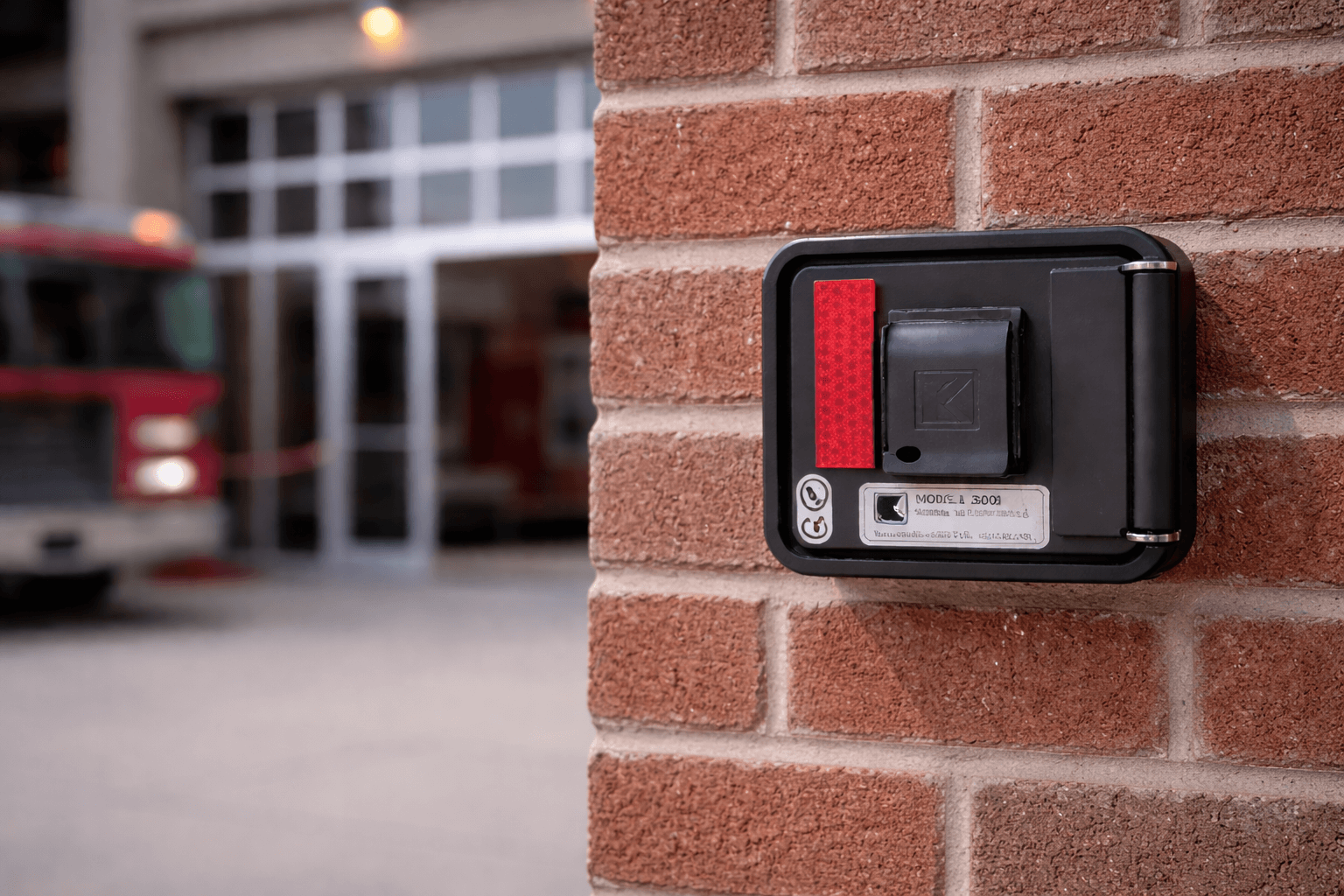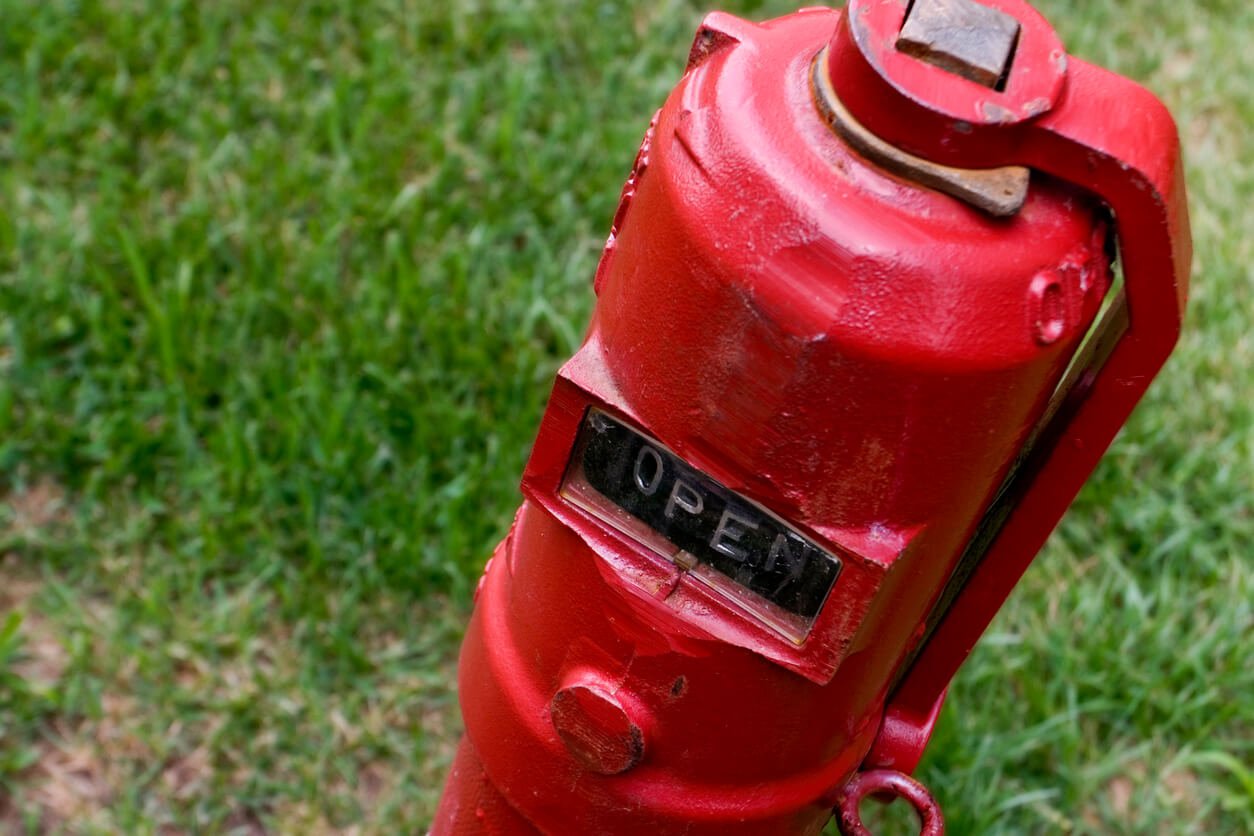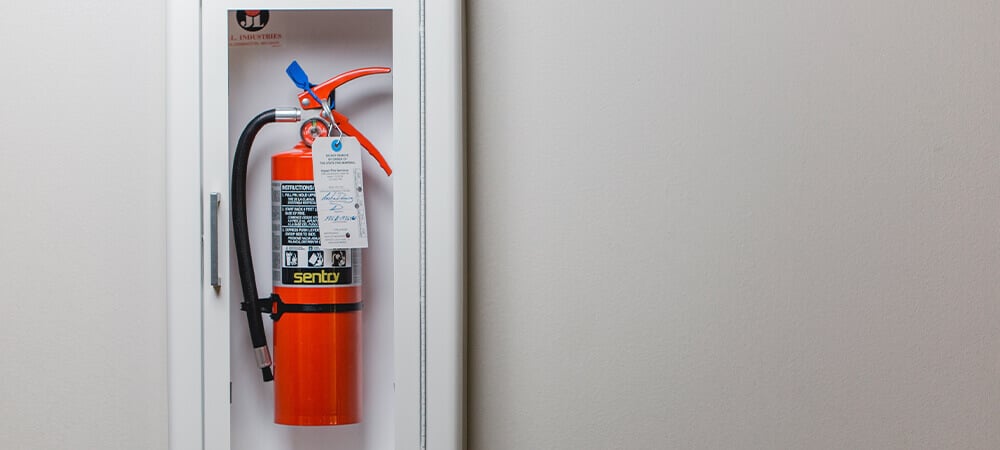4 Fire and Life Safety Tips for Food Trucks
- Establish a comprehensive fire suppression system
- Get the right fire extinguishers
- Regularly audit your ventilation systems
- Train your team on fire safety annually
Food trucks and concession trailers are everywhere right now, so protecting them (and the people in and around them) is becoming even more critical.
Food trucks aren't just a fun place to grab dinner; they are saturated with potential fire hazards that can escalate quickly.
Let's take a look at the fire suppression systems and life safety equipment all food truck owners need.
Key Takeaways
- Install automatic fire suppression systems with heat-sensitive fusible links positioned above all cooking equipment, including deep fryers, grills, and cooktops
- Maintain both Class K and ABC fire extinguishers on board—Class K for grease fires from cooking oils and fats, ABC for electrical, paper, and other common hazards
- Schedule quarterly ventilation system inspections with certified technicians to prevent dangerous grease buildup and ensure proper smoke management
- Train your team annually on fire prevention protocols, including emergency procedures, proper extinguisher use, safe equipment operation, and grease handling specific to mobile kitchen operations
- Partner with experienced fire protection specialists who understand mobile food service requirements and can ensure your systems meet varying local regulations
The NFPA on Food Truck Fire Safety
To keep up with the rapidly growing industry, the National Fire Protection Association (NFPA) has created new food truck fire safety requirements.
Fire protection equipment on a food truck is now required to be properly inspected and maintained by experienced certified technicians from fire protection service providers. This includes the fire suppression system and ventilation system, along with all fire extinguishers on the truck.
Food truck operators need to be aware of these essential regulations so they can proactively partner with an experienced fire protection company to procure the necessary equipment, stay in compliance, and ensure the safety of their customers, employees, and business investment.
Related Resources
As you learn more about the food truck fire systems to ensure compliance and safety, we strongly recommend downloading the following additional food truck fire and life safety tips to reference.
What Fire Hazards Do Food Truck Owners Need To Prepare For?
A food truck is no different than any other food establishment when it comes to fire safety requirements. In fact, the potential fire hazards look very similar to those found in commercial kitchens:
- Propane and natural gas systems
- Open flames from grills and cooktops
- High-level heat from cooking equipment (e.g., deep fryers)
- Portable generators (gas and electric)
- Cooking without proper fire suppression equipment
- Cooking oils, splattered grease, and cleaning chemicals
- Overheated kitchen equipment and electrical systems
With these fire risks identified, the next step is implementing the right fire suppression systems to mitigate each food truck hazard.
Fire Suppression System for Food Truck Operations
Kitchen fire suppression systems are in a class all their own (literally).
Here are some things that food truck owners should keep in mind about their fire safety plan.
Automatic Detection and Activation
Modern fire suppression systems for food trucks include heat-sensitive fusible links positioned directly above cooking equipment like deep fryers, grills, and cooktops.
When temperatures reach dangerous levels (typically around 360°F), these links activate the system automatically, releasing suppression agent while simultaneously shutting off gas or electric supply to prevent fuel from feeding the fire.
Equipment-Specific Coverage
A properly designed suppression system provides targeted protection for each piece of cooking equipment.
For example, deep fryers require nozzles positioned to cover the entire oil surface, while flat-top grills need linear coverage across the cooking surface. High-output burners and wok stations may require additional nozzles due to their intense heat production.
Mobile Kitchen Considerations
Unlike stationary restaurant systems, food truck fire suppression must account for vehicle movement, vibration, and limited space. Systems use flexible stainless steel piping and secure mounting brackets to ensure components remain properly positioned during transport between events.
Fire Extinguishers for Food Truck Cooking Equipment
When it comes to fire extinguishers, there are two main class types food truck owners need readily accessible: Class K and ABC fire extinguishers.
Class K Fire Extinguishers
Class K fire extinguishers are specialized units designed to put out fires caused by substances with high burn temperatures, such as grease, fats, and cooking oil, commonly found in deep fryers, grills, and other cooking equipment.
Keep in mind that Class K fire extinguishers should only be deployed after the activation of an integrated kitchen hood suppression system. This class of extinguisher is essential for any food truck business that works with oils and grease on a regular basis.
ABC Fire Extinguishers
Often overlooked, food truck owners also need a versatile ABC fire extinguisher to handle all other types of fires, including paper, wood, plastic, electrical, and more commonplace hazards that can occur during food service or while traveling to events.
Both types require regular testing and maintenance to ensure they'll work when needed. Certified technicians should inspect all fire extinguishers according to manufacturer specifications and local regulations to protect your business and ensure compliance.
Dig Deeper
Download The Ultimate Guide to Fire Extinguishers
Learn about the maintenance schedule and inspection process to upkeep fire extinguishers and maintain compliance. Learn More →
Ventilation Systems for Grease Management and Fire Prevention
The need for efficient ventilation systems is more accentuated for food trucks than for any other food establishment due to limited space. Space limitations cause smoke and vapor to build more rapidly, which can quickly make an environment uninhabitable for your team and customers.
A proper food truck ventilation system will help mitigate smoke build-up and dispel hazardous oil and grease particles that could lead to a fire, particularly when cooking with deep fryers, grills, and other high-level heat equipment.
Like other fire and life safety equipment in food trucks and concession trailers, ventilation systems need to adhere to local and state regulations. The NFPA requires all frequently used food trucks to receive ventilation system inspections on a quarterly basis at a minimum. Food trucks should partner with a kitchen exhaust specialist to perform more frequent inspections and routine cleaning to ensure functionality, compliance, and safety.
Regular maintenance of these systems is crucial for ensuring they continue to work effectively, especially when you account for the high volume of grease and cooking residue produced by commercial kitchen equipment.
Continual Employee Training for Fire Safety
While not considered a fire and life safety system in the traditional sense, a food truck's team can be the most effective fire hazard deterrent, if, and only if, proactive training is conducted.
Food truck fire and life safety training should be conducted annually to keep employees up to date on fire prevention and suppression best practices, ensuring they can effectively protect people and property at every event.
A robust employee training program should cover essential safety protocols, including:
- The emergency procedure for notifying the local fire department
- The different types of fire extinguishers and the class of fires they suppress
- How to properly and effectively use the specific fire extinguishers in the food truck
- How to manually turn off fuel sources and safely refuel as needed
- Safe operation of cooking equipment, including deep fryers, grills, and cooktops
- Proper handling and disposal of grease and cooking oils
- Recognition of fire hazards specific to mobile kitchen operations
Time invested in comprehensive training ensures your team can work safely and respond appropriately to fire emergencies, protecting both people and your business investment.
Put Food Truck Fire Hazards in Your Rearview Mirror
Food truck owners and operators must stay vigilant and resist falling victim to the "set it and forget it" mentality. It is not enough to simply procure fire and life safety equipment and call it a day.
Keep in mind that as you travel from event to event, you are responsible for adhering to the varying codes and regulations of each location you operate in.
Choose a fire protection service provider with experience in mobile food service operations who understands the unique requirements for concession trailers and food trucks. This partnership is essential for ensuring your fire suppression, ventilation, and fire extinguisher systems continue to meet the high-level safety standards required to protect your customers, team, and business.
For any NFPA code compliance questions or to install and maintain your food truck fire and life safety systems, our fire and life safety specialists are available.








